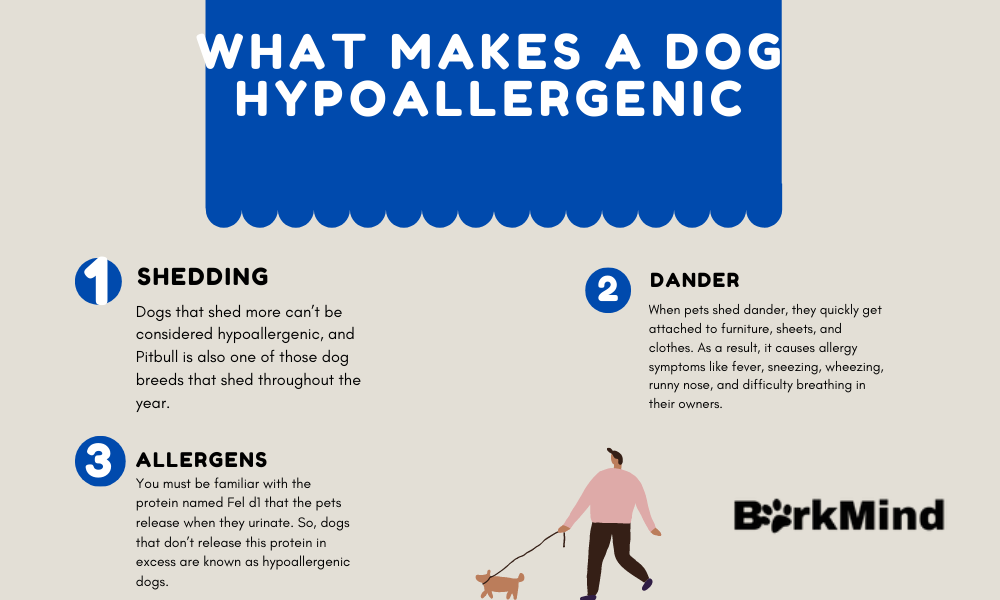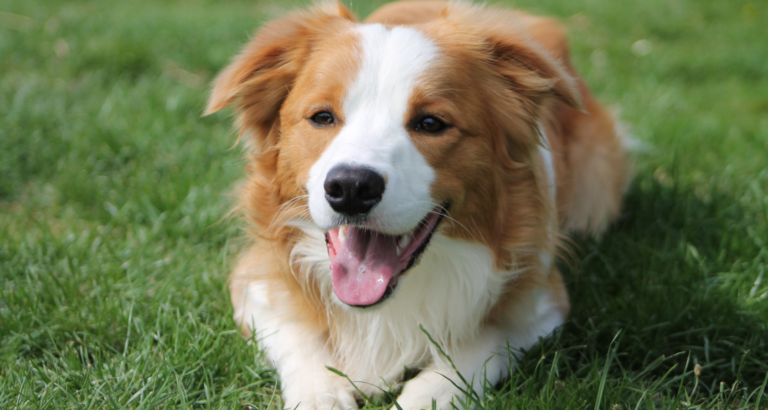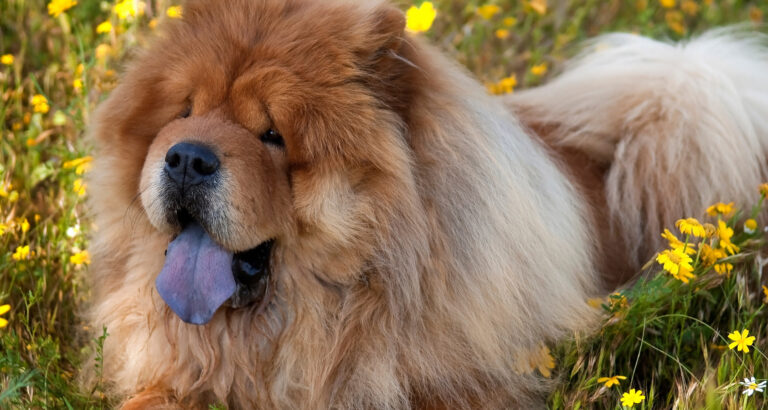Are Pitbulls Hypoallergenic? – The Truth About These Furry Dogs
Last updated on March 24th, 2023 at 10:59 pm
Reading Time: 7 minutesThis post may contain affiliate links. If you click and buy we may make a commission, at no additional charge to you.
Are Pitbulls Hypoallergenic? The Truth
Many people have heard that these dogs are hypoallergenic, but what does that mean? It’s true that Pitbulls are not one of the breeds most commonly associated with allergies, but it’s only true in some instances. Learn about the characteristics of this furry canine and whether or not you can own one without having to worry about allergies. If you already own a pet Pitbull, you must be familiar with the term hypoallergenic. Nowadays, many people have allergy problems, but it doesn’t mean that they can’t bring a non-hypoallergenic dog home.
Quick Answer
No. Unfortunately, they’re not hypoallergenic. But it doesn’t mean that Pitbull lovers can’t bring this dog breed home.
Nowadays, many people have allergy problems, but it doesn’t mean that they can’t bring a non-hypoallergenic dog home. Let’s learn more about what it exactly means for us and them.
Let’s dive in!
What Is a Hypoallergenic Dog?
Dogs that have minimum chances of an allergic response are called hypoallergenic dogs.
So, dogs that don’t shed or shed a little are classified as hypoallergenic dogs. These dogs have fewer tendencies to cause allergic reactions.
All dogs shed some amount of dander and fur, and both can have a severe effect on a person’s allergies.
Not all hypoallergenic dogs are created equal. In fact, there is no breed of dog that is completely hypoallergenic. Instead, some dogs produce fewer allergens than others do. However, even a hypoallergenic dog may cause allergic reactions in certain people. Any dog can cause an allergic reaction if its owner is allergic to dander or saliva.
Do Pitbulls Shed a Lot?
Yes and no. There are two categories of hypoallergenic dogs: non-shedding and low-shedding. A pitbull is considered a high shedder by many people, but if you only interact with them at times where their shedding is at its worst, you might never see it for yourself. They may not be ideal for those with allergies, but there’s more to consider before ruling out a dog because of shedding.
What Factors Make a Dog Hypoallergenic?
As mentioned earlier, no dog breed is 100% hypoallergenic. Hypoallergenic mean some dog breeds have a lower tendency to cause allergic reactions than others.
The below-given factors determine whether a dog is hypoallergenic or not:
- Shedding
It’s a natural hair loss process, and almost all dog breeds shed. Some shed seasonally, and some dog shed throughout the year. Dogs that shed more can’t be considered hypoallergenic, and Pitbull is also one of those dog breeds that shed throughout the year.
Dander
Pet’s dander can be another factor for allergic reactions in humans. Pets that don’t shed dander or dead skin cells much are known as hypoallergenic. On the other hand, pets that shed dander excessively are not known as hypoallergenic.
When pets shed dander, they quickly get attached to furniture, sheets, and clothes. As a result, it causes allergy symptoms like fever, sneezing, wheezing, runny nose, and difficulty breathing in their owners. Dogs with non-shedding coats are known as hypoallergenic dogs.
- Allergens
Unfortunately, hairs and dead skin cells are not the only culprits for pet allergies. When dogs continually drool in the home, they produce allergens in the home. You must be familiar with the protein named Fel d1 that the pets release when they urinate. So, dogs that don’t release this protein in excess are known as hypoallergenic dogs.

Are Pitbulls Hypoallergenic Dogs? Detailed
Unfortunately, Pitbulls are not hypoallergenic. They have dry skin that causes them to shed fur and dander. These can cause allergic reactions to humans.
Pet dander is the dead skin cells, and they’re similar to dead cells that humans shed.
Unfortunately, pet dander is the major cause of triggering allergies in people. When people suffer from allergies, they mostly have constant sneezing, itchy skin, watery eyes, and congestion.
Even though Pitbulls aren’t hypoallergenic it doesn’t mean that you can’t bring these adorable dogs home.
Is It Possible to Make Dogs More
Hypoallergenic?
Us as owners can’t make dogs more hypoallergenic. But there are some steps and tips that we can take to keep our allergy symptoms at bay.
The small steps can make a big difference.
- Grooming
The best way to maintain excessive shedding is regular grooming. You can’t change their shedding routine, but you can at least try to control it. When you regularly bathe and brush your dog, it will prevent the dog’s fur and dander from irritating you. If you have time and money, take your dog to a professional groomer at least after every two months.
A groomer can give them a good scrub to moisturize their skin and get all the loose and dead fur from their body. By doing this, these furs and dander will not shed in your home. Moreover, you need to brush your dog between these visits to the groomer.
Ensure that you purchase the right brush for your short-haired dog. More importantly, the brush should be able to pull out the loose and dead fur without pulling their fur.
If your dog has muddy fur, get a natural shampoo with soothing ingredients. Ensure that you don’t purchase a shampoo with scent. These products contain chemicals that can irritate their skin more.
Cleaning
If you don’t want to be separated from your Pitbull, then you’ll have to make some extra efforts. For example, you’ll have to keep your home clean. It will help you in many ways. When you regularly vacuum clean the house, you’ll see a massive difference in your allergies. If possible, replace your carpet with hardwood. Hardwood doesn’t catch the pet’s fur, and dander like carpet does.
If you don’t want to replace your carpets, ensure that you regularly vacuum them. You can use the vacuum on furniture and couches to grab all dogs’ hair. If possible, try to vacuum at least once a week. This practice will help you keep your allergies away.
Clean Your Sheets
Change and clean your bed sheets regularly. Sometimes you don’t even notice the amount of dog hair that gets caught in the sheet. So, if your dog sleeps with you, ensure that you wash your sheets at least once a week. By doing this, you’ll feel lots of differences in your allergy symptoms.
Remember, you need to follow the same practice for pillowcases too. Sometimes you can’t put your comforter in the washer. So the best practice is to use a cover on your comforter. It will ensure that you only wash a cover instead of putting your bulky comforter in the laundry.
Food and Nutrition Is Key
Pitbulls suffer from seasonal and food allergies, and both these allergies significantly affect their skin. When they have dry, itchy, and irritated skin, they’ll scratch more, and as a result, they shed more. These Pitbull allergies lead to more sneezing.
If you feel that allergies are due to food, consult your vet before making any changes in your dog’s diet. Some ingredients in a dog’s diet might be the culprit for those allergies. For example, if your dog is allergic to poultry, look for other protein options.
You can use fish oils, and they will do wonders for the skin and coats of your Pitbulls. More importantly, they will decrease your allergy symptoms.
Are Pitbulls Bad for allergies?
For people with a dog allergy, finding a hypoallergenic dog breed can be a great way to reduce allergic symptoms. Sadly, Pitbulls are not Hypoallergenic. So are they bad for allergies? Yes, it is recommended to keep them away from you. Even though you can live with them. It’ll affect you and cause an allergic reaction.
This means that if you have allergies, you may still have an allergic reaction to these types of dogs. If you love them for their appearance or for their personality, then by all means go ahead and get one! But if you want a dog who will reduce your allergy symptoms then look elsewhere. There are several different breeds of hypoallergenic dogs on the market today including poodles, bichon frise’s and some terriers like cockapoos.
Is a Red Nose Pitbull Hypoallergenic?
Although many people think that a red nose pitbull is hypoallergenic, they are not considered to be true hypoallergenic dogs. Although they shed less than other dog breeds, they still shed and should not be confused with non-shedding dogs. So, no they are not hypoallergenic dogs just like Pitbulls.
Conclusion – Are Pitbulls Hypoallergenic?
No doubt, Pitbulls are the perfect companions on the planet. However they’re not ideal for people with allergies, but you can still bring this dog home and follow the tips mentioned in this article. But for this, you’ll have to take some extra steps to maintain your allergies.
To sum up, Pitbulls are not hypoallergenic, but they’re full of love that makes them ideal companions even for people suffering from pet allergies!
If you’re thinking about getting a dog and have allergies, talk with your doctor before bringing home your new pet. He or she will be able to help you decide which type of dog would be best for you and your family.
About The Author
Mother, Certified animal Behaviorist who loves pets. Has two dogs and a cat. Trained veterinarian and loves to write about her experiences.






